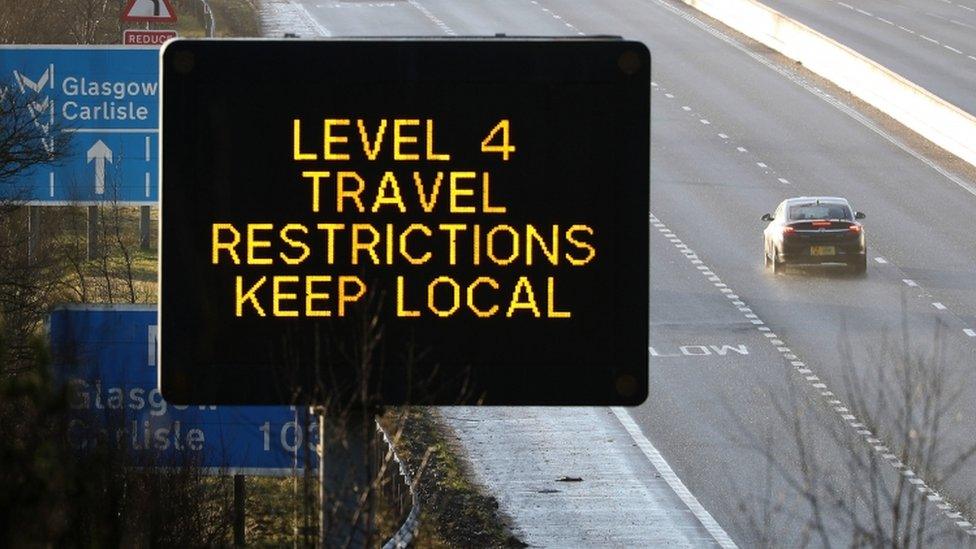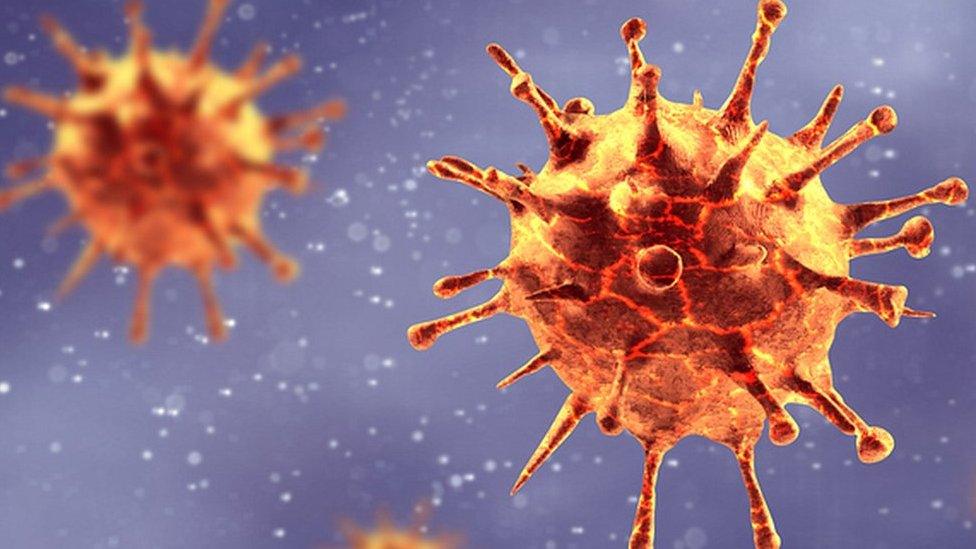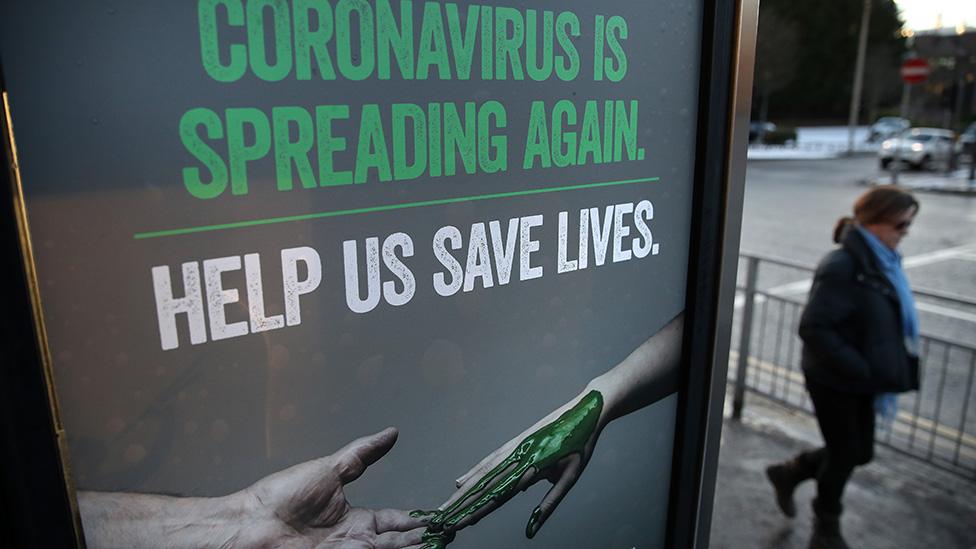Covid in Scotland: Restrictions 'could continue' amid rising cases
- Published
Prof Linda Bauld says Scots should be prepared a longer period living with level four restrictions
Scotland should be prepared for Covid restrictions to be extended as infection rates continue to rise, a public health expert has said.
The latest government figures show a further 2,137 cases of Covid-19 were confirmed in Scotland on Friday.
Prof Linda Bauld described it as a "fragile situation", despite the rate dropping below Thursday's 2,539 cases.
The latest figures for hospital admissions and deaths will not be published until Tuesday.
First Minister Nicola Sturgeon warned on Friday that the next few weeks could be the most dangerous period for Scotland since March in the fight against Covid as the new variant of the virus was "accelerating spread" across Scotland.
Daily confirmed cases reached record highs on the last three days of 2020, rising to to 2,622 on Thursday.
The percentage of positive cases also reached 14.4% on Wednesday - the highest it has been since the second wave of the pandemic began in the summer.
It had dropped to 10.8% on Friday. A percentage of lower than 5% is needed to show the virus is under control, according to the WHO.
Prof Bauld, a public health expert at the University of Edinburgh, said there were no signs yet that the infection rate was levelling off, having risen suddenly from a daily rate of fewer than 1,000 to more than 2,000 per day in recent days.
She told BBC Scotland: "It definitely is a fragile situation and you can see that we have more cases than we would expect at the current time.
"We may be starting to see some of the impacts of the Christmas mixing, but also we know around four in 10 cases, from recent data, are of the new variant.
"I would imagine that the new variant is playing a role in these higher rates of infection and if these numbers continue to sit at where they are we are going to have more people in hospital in a week or two's time, and that is very worrying."

All of mainland Scotland is under level four restrictions in an attempt to slow down the rate of virus spread
This would bring "real challenges" for hospitals, especially in the central belt, Prof Bauld said, adding that it was "absolutely imperative that we do not see these number rise more than they are now".
She said it would take some time to see the impact of level four restrictions introduced in mainland Scotland on Boxing Day.
"Mentally we just need to be prepared for the fact that we may be living with the level four restrictions for longer than the Scottish government currently plans," Prof Bauld said.
She said the new, more transmissible coronavirus variant would make it harder to get the R number below one in Scotland and schools may not be able to fully reopen on 18 January.
The government's education recovery group, external was preparing with schools for blended learning to go on longer if necessary, she added.
Vaccination programme
All of mainland Scotland is under level four restrictions in an attempt to slow down the rate of virus spread.
A new study by London's Imperial College has found that the new variant of Covid-19 is "hugely" more transmissible than the virus's previous version.
It concludes that the new variant increases the Reproduction or R number by between 0.4 and 0.7.
The Scottish government's most recent estimate of the R number in Scotland, external has put it between 0.9 and 1.1. It needs to be below 1.0 for the number of cases to start falling.
The government has described the vaccination programme as a "light at the end of the tunnel" and has urged people to stay at home as much as possible in the meantime.



- Published1 January 2021

- Published1 January 2021
